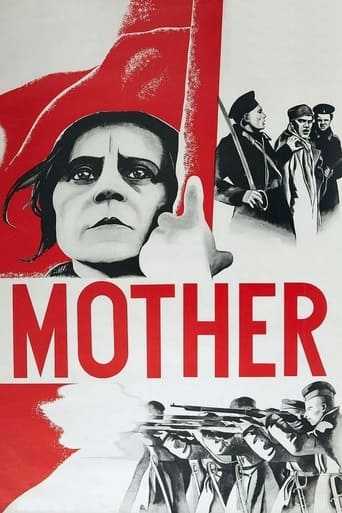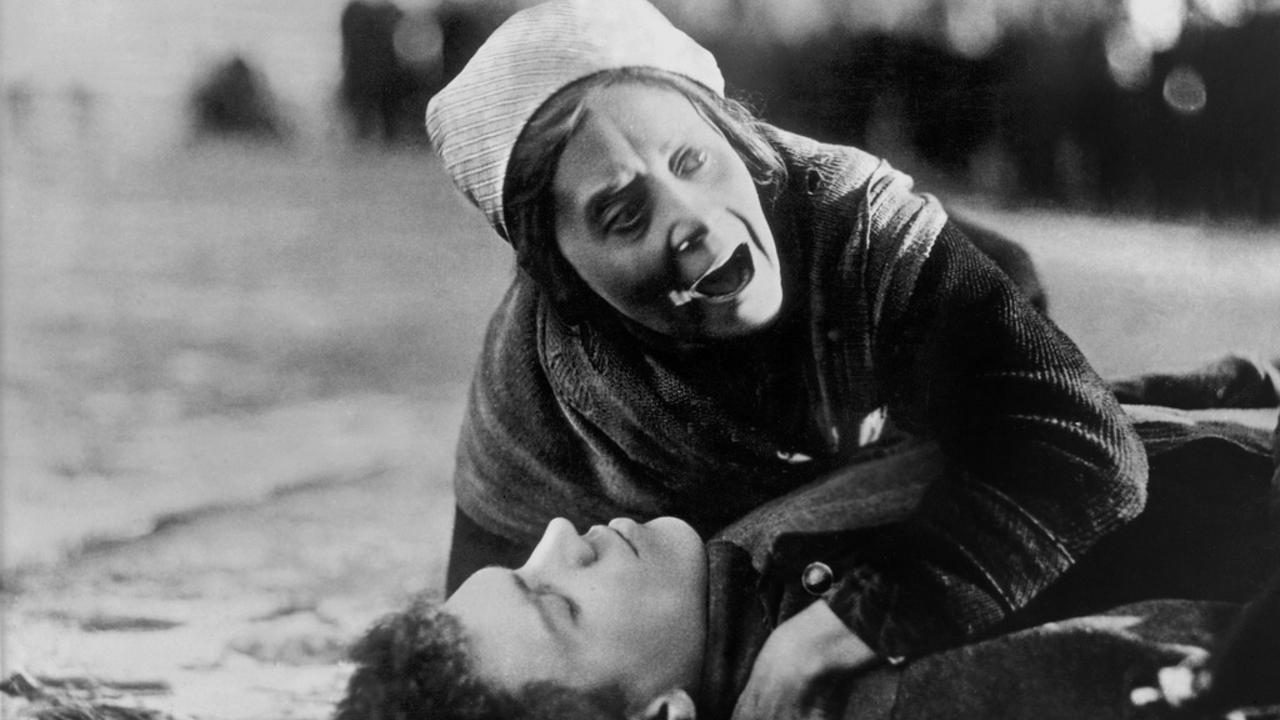chaos-rampant
Structures shaping into motion, motions reshaping into structure, against each other, so that the whole thing is like a snowstorm rolling down a hill; gathering itself to itself. Which is to say the people to the people, in an effort at once to reshape and portray the reshaped world.Look here. The first third ends with a murder, so the entire part is about wild kinetic energy building to it; disenchanted workers plotting a strike – the metaphor for revolution, as so often in these films – factory cronies plotting to break them, pitting rugged father against idealist son. Meanwhile the factory owners, disinterested, arrogant, oversee the bloody drama from their lofty window.The second third ends with injustice, and so the entire second part is about the mockery of justice; a colonel promising the hapless mother her son – the instigator of events - will be okay if she surrenders a hidden stash of guns, then arresting him, followed by a mock trial where each of the judges presiding is a parody of human values.The final part is about revolution, so the entire thing is about the preparations of the final stand. Again the revolutionary metaphor, so poignant in these films; a prison filled entirely with workers, farmers, the oppressed with a dream languishing somewhere. And so, everything becomes imbued with meaning; the prison walls as walls at large, the doors slammed open with conflict, the bridge where passage is presaged by a rite of violence.The strikers scattered by mounted police into a mob, it's the mother who picks up the banner of revolution. Down by the bridge, floating ice is shattered on the concrete pillars; ice dissolves, floating away, but the bridge stands.And so the suffering and sacrifice of the nameless heroes is transformed into structures that will stand the test of time; bridges, factories, where the banner of revolution unfurls at the top, enduring symbols of a thriving industry, a healthy, self-sufficient nation. We may think what we want about the equation in terms of politics, but how it's equated through cinema? It comes with the natural ease that only a filmmaking tradition so deeply centered in its worldview could afford; the individual is transmuted, engulfed into a collective structure - the Soviet god in place of a god - , in a way that reveals the individual struggle to have been redolent with purpose all along. It's a spiritual vision, make no mistake; about communion with the life-destroying, life-renewing source; about harmony of structure from the chaos of forms.
wes-connors
In wintry 1905 Russia, "Mother" Vera Baranovskaya (as the Mother) toils over housework, while son Nikolai Batalov (as the Son) sleeps. Hard-working husband and father Aleksandr Chistyakov (as the Father) arrives home to drunkenly slap his wife around. In the opening minutes, these three characters are clearly drawn. The younger man represents collective (striking) workers while his father sides with the (oppressive) establishment. "Mother" Russia must balance love and duty. Her final decision should come as no surprise. This film highly regarded but sometimes difficult to follow. Director Vsevolod Pudovkin moves the story effectively, with quick shots. This should help you stick with it for the excellent final thirty minutes.******* Mat (10/11/26) Vsevolod Pudovkin ~ Vera Baranovskaya, Nikolai Batalov, Aleksandr Chistyakov, Ivan Koval-Samborsky
Lee Eisenberg
Released right after "Battleship Potemkin", "Mother" shows a woman forced to choose between siding with her labor-organizing son or her corrupt husband. The movie makes double sure that we get to see the living conditions in Russia in 1905, but it also uses ice as a metaphor. There are a few scenes where we see ice breaking up on the ocean; it basically shows that the old order is slowly but surely coming apart. I have to admit that this is the only Vsevolod Pudovkin movie that I've ever seen, but it's certainly a good one, if only as a historical reference. A noticeable difference between Eisenstein and Pudovkin was that Eisenstein was into typage (meaning that he liked to choose any random person who looked right for the role), while Pudovkin was very fixated on whom he wanted.
Dr.Mike
This is one of the classic Soviet silent films. The story is about a family torn apart by a worker's strike. At first, the mother wants to protect her family from the troublemakers, but eventually she realizes that her son is right and the workers should strike. The plot is similar to other Soviet films of the era but does focus more on the individual than some of Eisenstein's films. The mother and son do represent the collective but they are also strong characters on their own.The best part of the film is the editing. It is always sharp and quick. When there is action, the edits are fast and give the viewer a sense of chaos. The Soviets were masters of montage and this film is a prime example. The acting is also better than in most silent films. It is clear that the actors come from the serious stage and not Vaudeville. The cinematography is somewhat average, though, and the film feels a little flat at times. It is not perfect, but it is worth seeing for all and essential viewing for those interested in Russian film or montage.


 AD
AD



